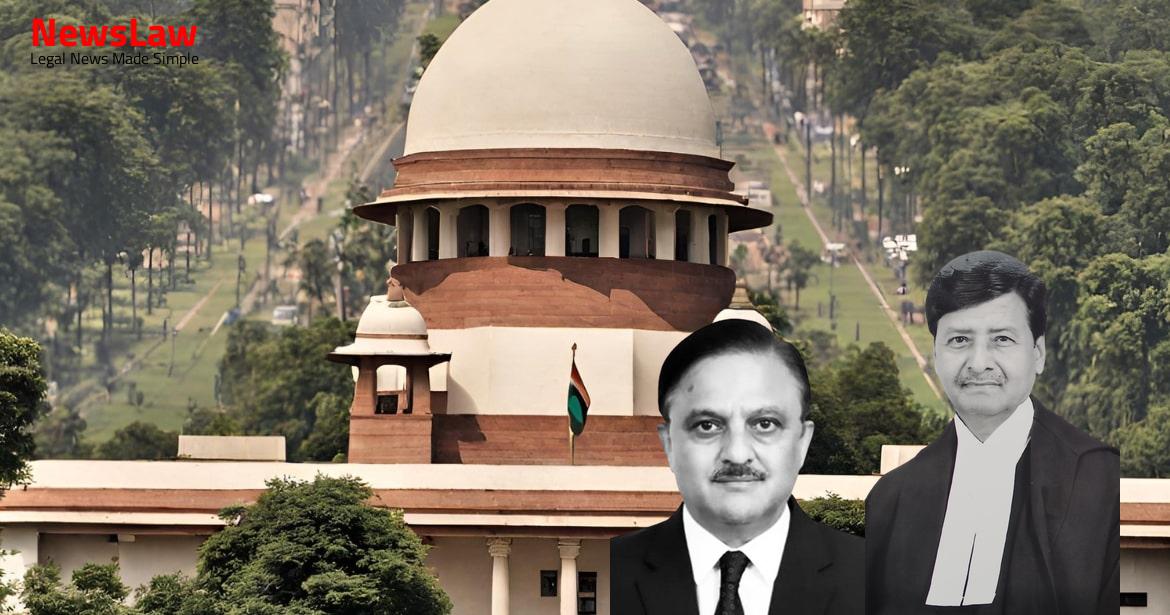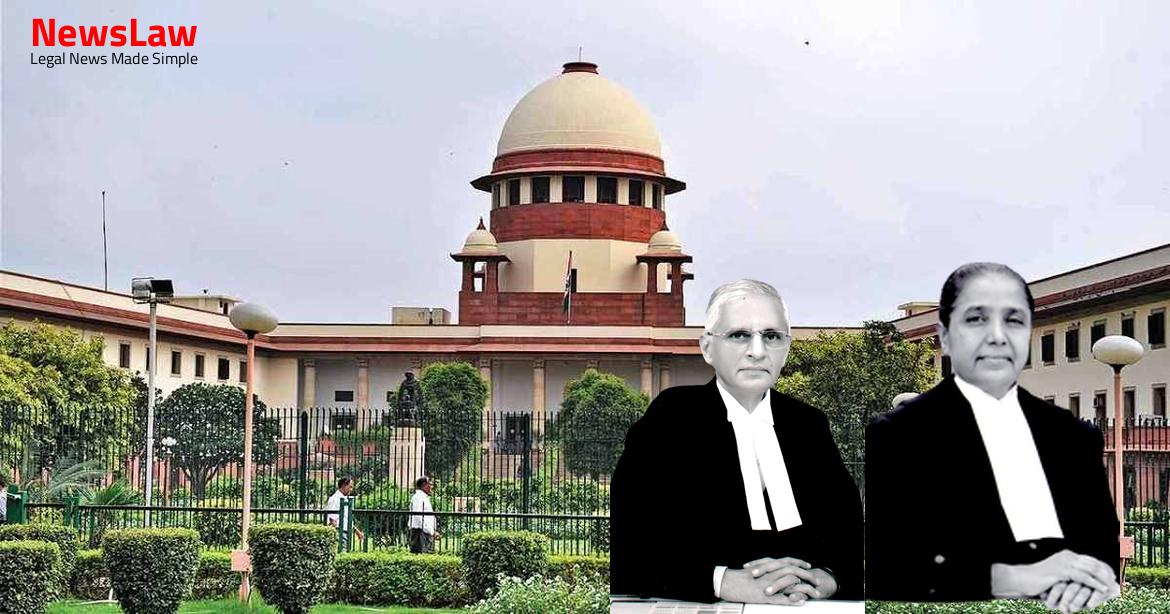In the realm of administrative auction reviews, the court’s legal analysis plays a pivotal role in upholding the principles of judicial restraint. This summary dives into the significance of preventing arbitrariness and promoting lawful decision-making within administrative procedures. Let’s delve deeper into the nuances of judicial oversight in state contracts and the critical role it plays in ensuring transparency and fairness in government transactions.
Facts
- The Financial Commissioner observed that the auction could have fetched a better price.
- It was mentioned that the land could have fetched Rs. 8-10 lakhs according to the State.
- Only three bidders participated in the auction, with Mehar Din having the highest bid of Rs. 3,90,000.
- Collusion between the Sales Agency and possible vendors was suspected.
- The Sales Commissioner is not bound to accept the price settled in the auction and should strive for a better price.
- The Financial Commissioner accepted the appeal and set aside the previous orders, calling for re-auction of the land.
- The reasoning of the Financial Commissioner was questioned, based on conjectures and surmises.
- No irregularity or illegality was found in the auction proceedings that could have vitiated the process.
Also Read: Admission Deadline Adherence in Medical Courses
Analysis
- The judicial review is limited to preventing arbitrariness, irrationality, bias, malafides, or perversity in auction proceedings.
- The decision to cancel the auction was upheld by the competent authorities after due appraisal of the record.
- The High Court’s finding of irregularity in the auction proceedings was deemed unsustainable and set aside.
- The highest bidder at public auctions has no vested right until the bid is confirmed by the competent authority.
- The interference of the Courts in contractual and commercial matters should be minimal.
- The High Court’s interference in the auction decision was considered unjustified as the authority handling the auction is best suited to judge the requirements.
- The respondent had no accrued right based on statutory provisions in the auction process.
- The executive’s decision to cancel the auction bid was within its discretion and not found to be arbitrary or unreasonable.
- The Tehsildar (Sales) or Naib-Tehsildar (Sales) shall order a proclamation of the intended sale in the language of the principal civil court of original jurisdiction where the property is located.
- Notice of the intended sale must be given at least fifteen days before the proposed sale, including details such as date, time, place, description of the property, location, boundaries, terms, and conditions.
- The notice of the intended sale shall also be given by beat of drum in the locality where the property is situate.
- The competent authority must confirm the sale and complete all formalities within three months from the date of receipt of the order.
- The Tehsildar (Sales) or Naib-Tehsildar (Sales) can withhold the sale of any urban property by providing a written order with recorded reasons.
- Urban property put up for auction will have a reserve price fixed, which shall not be disclosed.
- The sale can be adjourned by the Tehsildar (Sales) or Naib-Tehsildar (Sales) for specific reasons with a written order, and an announcement shall be made at the time of adjournment.
- The highest bidder at the public auction must pay the whole amount in cash at the fall of the hammer.
- For bid amounts exceeding Rs. 500, the bidder must pay accordingly.
- If a sale is adjourned for more than fifteen days, a fresh notice must be given in the specified manner.
- Judicial restraint is advised in matters of administrative action.
- Courts do not act as courts of appeal but review decision-making processes.
- Courts lack the expertise to correct administrative decisions.
- The need for overwhelming public interest is crucial for judicial intervention in state contracts.
- Administrative decisions must be free from arbitrariness, bias, or mala fides.
- Quashing decisions may burden administration and lead to increased expenditure.
- Judicial review of government contracts aims to prevent arbitrariness or favoritism.
- The purpose is to ensure lawful decision-making rather than assessing the soundness of choices.
- Interpretations of tender documents are best judged by the author of the documents.
Also Read: From Nominee to Disqualified: Supreme Court Scrutinizes Age Evidence, Declares Election Invalid
Case Title: THE STATE OF PUNJAB Vs. MEHAR DIN (2022 INSC 249)
Case Number: C.A. No.-005861-005861 / 2009



